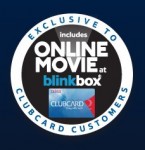
I’ve been seeing this more and more. You have to upgrade a product – a home (free) edition or something. You press the link and it sends you to a page that talks about upgrading. In fact, everything this page screams is “We don’t have the free version, you must buy an upgrade to continue”.
But if you scan the page, you see on the bottom in small print “No thanks. Register the Free version”.
Another case in point: I was searching for Drivers for a friends computer. I got to the companies webpage and selected what I thought was the driver. Instead, it shuttled me to download a program that would then collect information on my PC and find the right drivers.
It was not malware, but more of Bloatware. And that program wasn’t afraid to do the same thing – ask to install more Bloatware.
This practice is on the verge of misleading. You have to really scan pages to make sure you are selecting the right option.
Case in point #2: There is a great website out there that helps webmasters. We won’t get into the name, because this is not a witch hunt. I will say that when you purchase something on their site, you are taken to a page that looks like you have to press an “OK” button. However, this button is not to OK the purchase, but to add additional services. By scanning down the page, you find the “No thanks – Continue” option stuffed in the bottom part of the page.
In advertising creation, you learn a little trick. When an eye hits an ad, they instinctively start in the middle and work clockwise around the ad. Therefore, you put your “Hook” in the middle and the other items on the sides, including the name of the product.
What these sites have done is made the ad, but then put the “No thanks” in a spot where upon first glance, the eye will miss.
I just bought my ticket for Blogworld / New Media Expo. I used a discount site to purchase the plane ticket and hotel. After making the initial purchase, I was inundated with options I should look at. I suppose it’s so the discount site can offer lower fares. Once again, I had to carefully scan for the “No Thanks” option, although those other buttons looked like they were part of the processing.
Recently, people have been finding extra charges on their credit cards. They went to an online shopping site and chose the great deal of the day. They then pressed a button that looked legitimate to sign up for monthly deals (or something like that). Of course, those deals came with a price.
I really think that the FTC needs to start recognizing these little nuances in websites. It would be like if you went to the grocery store and the clerk started asking “Should I also add in a gallon of milk?” even if you didn’t grab milk.
As for this upgrade – I understand you need to make money off the product, but being sneaky about doing it is only going to make me go somewhere else. Put the “No thanks” in a more visible area. The consumer will buy your product if they don’t feel they are getting swindled.
 BMG has apparently been caught with some egg on their faces. They issued a YouTube media take down on a Romney political ad that had a small clip of the President singing Al Green’s “Let’s Stay Together”. After being called out on it, and told that the same clips of the President Singing was on a huge number of YouTube clips they started issuing take down’s of those videos as well.
BMG has apparently been caught with some egg on their faces. They issued a YouTube media take down on a Romney political ad that had a small clip of the President singing Al Green’s “Let’s Stay Together”. After being called out on it, and told that the same clips of the President Singing was on a huge number of YouTube clips they started issuing take down’s of those videos as well.
 Supermarket Tesco and on-line movie site
Supermarket Tesco and on-line movie site 
 New technology always disrupts. This has always been true, whether it was the invention of the wheel, the automobile, or modern electronics. With each new disruption, interactive business and social commerce is disturbed. Established business and social models are suddenly rendered partially or fully dysfunctional. For every new disruptive technology that comes along, an old business model is broken and new opportunities are created.
New technology always disrupts. This has always been true, whether it was the invention of the wheel, the automobile, or modern electronics. With each new disruption, interactive business and social commerce is disturbed. Established business and social models are suddenly rendered partially or fully dysfunctional. For every new disruptive technology that comes along, an old business model is broken and new opportunities are created.
